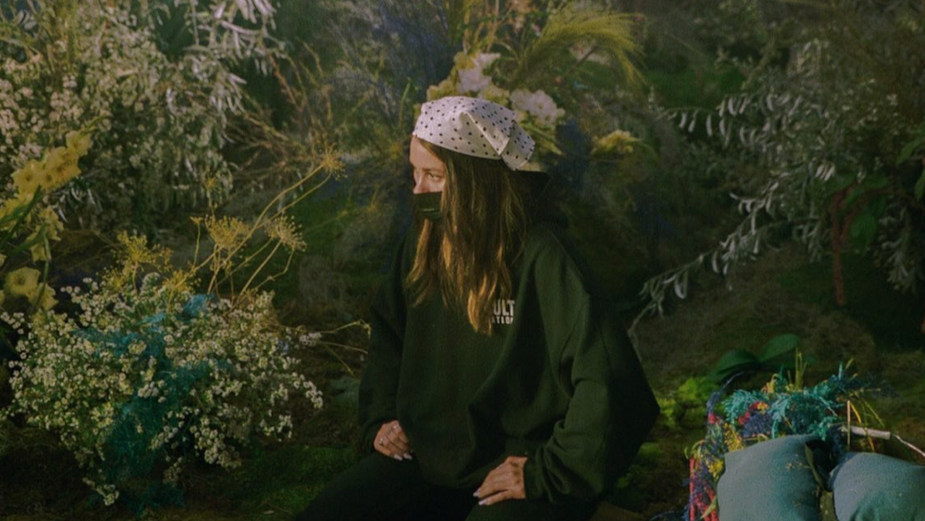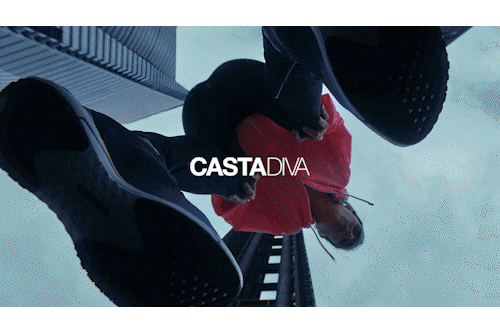
Uprising: CARAZ on How to Find Grace in Directing

Born in the ‘beloved but freezing cold’ Quebec and raised by a French-Italian family, Irresistible Studios’ director Caraz claims to have been a ‘moony loner’ as a kid, but also an optimistic risk-taker. Due to her upbringing, she learned from an early age how to ‘ski, cook and yell’ very well. “I never really identify with Quebec culture, which is still recovering from a heavy Catholic upbringing since its colonisation by the French,” she says. “Nor with my European roots because I was raised in North America.” As many children of second generation expat parents Caraz explains she feels somewhat of a disconnect, when watching a Quebec film or show. “It feels like looking outside by the window: I recognise the landscape, but there is a distance, a glass, between us.”
This disconnect and the dichotomy between her European roots and Canadian upbringing never stopped Caraz from pursuing what she loved most as she was growing up – theatre! Religiously, after school, she would drive to the nearest theatre to play in the afternoons. This passion, mixed in with a bit of figure skating, somehow ended up with her pursuing a Bachelor’s degree in Television and completing a directing program at USC in America. “I just got back to school in Comparative Literature to keep learning new things,” she explains.
Her biggest learning curve is coming to terms with the fact that directing isn’t something one learns at school. “If you’re lucky enough, they’ll teach you about cameras and the principles of writing, but you can’t become a director by studying directing.” If she had to do it all over again, Caraz says she would’ve picked something different, or more like literature, which she is now pursuing. Caraz is certain that besides the fact that nobody can learn directing at school, nobody can shape their craft by “exploring museums or subscribing to the Criterion Channel.” And even though she admits that ‘it sorta sucks,’ she also knows that the only way is to make many mistakes and look at taste as an evolving skill, that is honed only by exposing yourself to art. “It will grow just like a muscle you train.”
Her first “fake it till you make it” moment was actually her first ever job. “I read that Bali was a creative hub for expats developing digital businesses, so I flew there with a Canon 7D. Once I landed, I went to the coworking space of the town and told everyone I was a photographer,” which she now admits she absolutely was not. This white lie landed Caraz her first lookbook shoot, after which she steadily started producing shoots all around the world for small brands that wanted ‘exotic decors.’ She describes this experience as “hustling [her] way in” the industry and what she learned from the earliest hustle was that “if something feels off, it usually is.”
From exotic lookbooks, to today, Caraz singles out one project that she particularly loves and believes has turned her career – her latest film, ‘Do Butterflies Remember Being Caterpillars.’ Saying the film changed not only her career, but her life, Caraz looks back at it with fondness: “I created it for myself and to honour my actor, without thinking about the perennity or coolness of the film. I simply didn’t care and just wanted to do my thing. Ever since I’ve been approaching personal projects like that – it is much more fun.”
Overall when looking at her job, what Caraz loves most is the pleasant surprises: “In every part of its process, I notice moments of grace. Synchronicity, a surprising element in a scene that elevates a performance, a smile behind the monitor or a sunset peaking the clouds for your last scene.” Of course every process has a tedious side, for Caraz that being the moment of sitting in the editing room for long periods of time before the team has cracked the edit. But ultimately, what makes it all feel worth it is her need to “make others feel seen in front, behind and above.”
In the broader industry, what Caraz hopes to change is the hypocrisy when it comes to checkbox diversity. “There’s a lot of labelling when agencies write a role. Every time they want a person of colour, the characteristic is labelled as a requirement, but I don’t remember seeing one script where they labelled a part as ‘white actor’ when that’s exactly what they want. I think there is often a fake sense of inclusion in commercials and generally speaking clients, agencies and production companies are mostly constituted of white people. We should open casting to all ethnicities and let the best actor or actress get the role instead of labelling.” This, alongside regulating director work (agencies paying for pitches, directors being provided with their own copyright and regulating director’s fees) are things Caraz wants to see improve.
Beyond this, she is extremely excited to work on more European projects, as she finds the briefs to be creative and the craft very high quality. This will also allow her to work with talent from different backgrounds, which will give her a deeper sense of connection with the work. Which is when she enjoys it most! That, and when it all seems like a big adventure.















